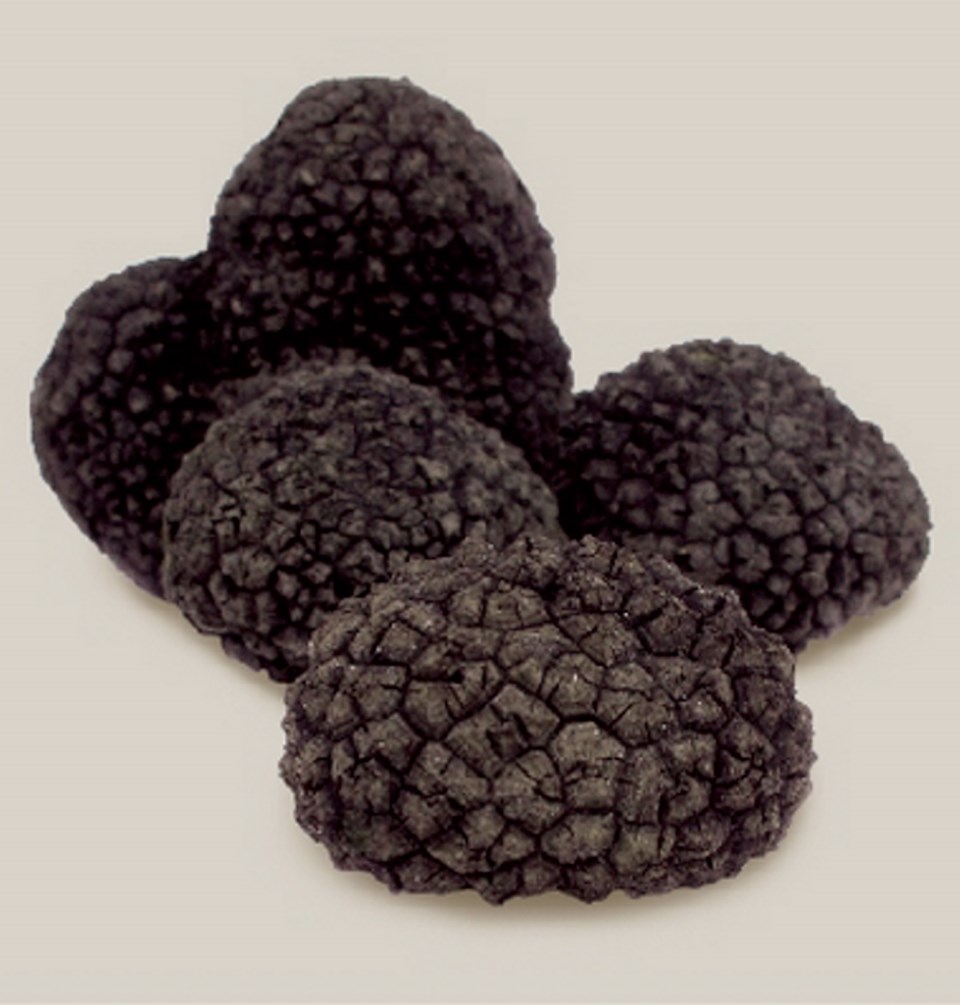Abbotsford farmer Bill Stewart last month became the first person to harvest the rare black Périgord truffle in B.C. – a feat likely to attract investment from farmers eager to snag a slice of a sector that can generate revenue of more than $100,000 per acre.
Chefs and truffle connoisseurs pay exorbitant prices for the treasured fungus and its musky flavour. Some scrape flakes onto scrambled eggs. Others coat them in chocolate or add them to salads, soups and sauces.
Unlike native truffles, which grow in the wild and can fetch up to about $1,000 per kilogram when sold wholesale to restaurants, the black Périgord truffle sells for more than $2,200 per kilogram and is the only variety that is farmed. Its value is exceeded only by the Italian white truffle, which can sell for more than $14,200 per kilogram.
Truffle farmers in France, Spain and Italy have successfully harvested up to 45 kilograms per acre of the black Périgord truffle.
That makes truffles one of the few crops that can be lucratively grown on small acreages and hobby farms.
B.C.’s truffle sector is tiny but its entrepreneurs envision it soon growing as fast as in Australia and New Zealand, where truffle farming launched in the 1990s.
According to B.C. Truffle Association president John Neudorf, only six local farmers are trying to cultivate the black Périgord truffle: four in the Fraser Valley and two on Vancouver Island.
“This year we’ll have a few more serious entrants,” Neudorf said. “People who are interested in this have been waiting on the sidelines to see if harvesting the black Périgord truffles is possible here.”
Neudorf, Stewart and the four other B.C. truffle growers all started their enterprises within the past decade.
Stewart was first out of the gate. He planted about 700 hazelnut seedlings in 2004 and 2005 on his Stewart’s Farm.
Truffles grow in the roots of European oak or hazelnut trees, which are infused with spores.
Stewart, too, sought the help of Charles Lefevre. The Oregon truffle industry veteran and owner of New World Truffieres Inc. sells a truffle innoculum and what he calls “magic ingredients” necessary to grow black Périgord truffles.
Stewart had to sign a disclaimer prohibiting him from revealing Lefevre’s secrets.
A crop of truffles, which grow best in expensive limestone-based alkaline soil that’s far less acidic than soils native to B.C., can take up to 15 years before they can be harvested.
Unlike mushrooms, truffles never poke their heads above ground. They remain about six centimetres to 25 centimetres underground and are found by truffle-sniffing pigs or dogs.
Seattle’s Alana McGee, who operates Toil and Truffle, a truffle-finding and dog-training business, found Stewart’s first black Périgord truffle on March 8.
University of British Columbia researchers ran tests to confirm the find. McGee then helped Stewart find two more of the rare truffles two weeks later.
McGee employs handlers such as Burnaby’s Brooke Fochuk who help truffle farmers find their valuable crop.
“Up to now, everything has been experimental [with black Périgord truffles] so we’ve been doing it pro bono,” McGee said. “It’s good practice for our dogs to be on plantations because it’s a completely different setting from what they’re used to in the wild. In the future, what we’ll do is have contracts.”
Business in Vancouver: http://www.biv.com/article/20130416/BIV0101/304169988/fungus-farmers-set-to-reap-crop-worth-2200-per-kilo



